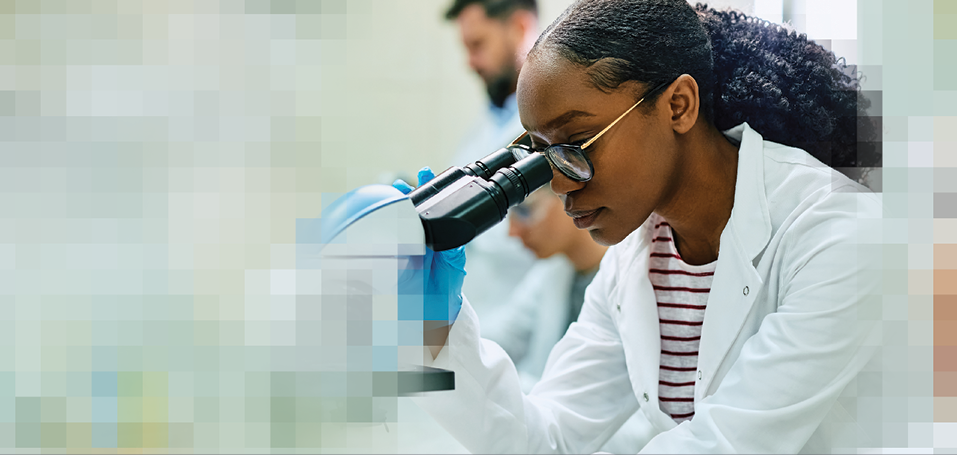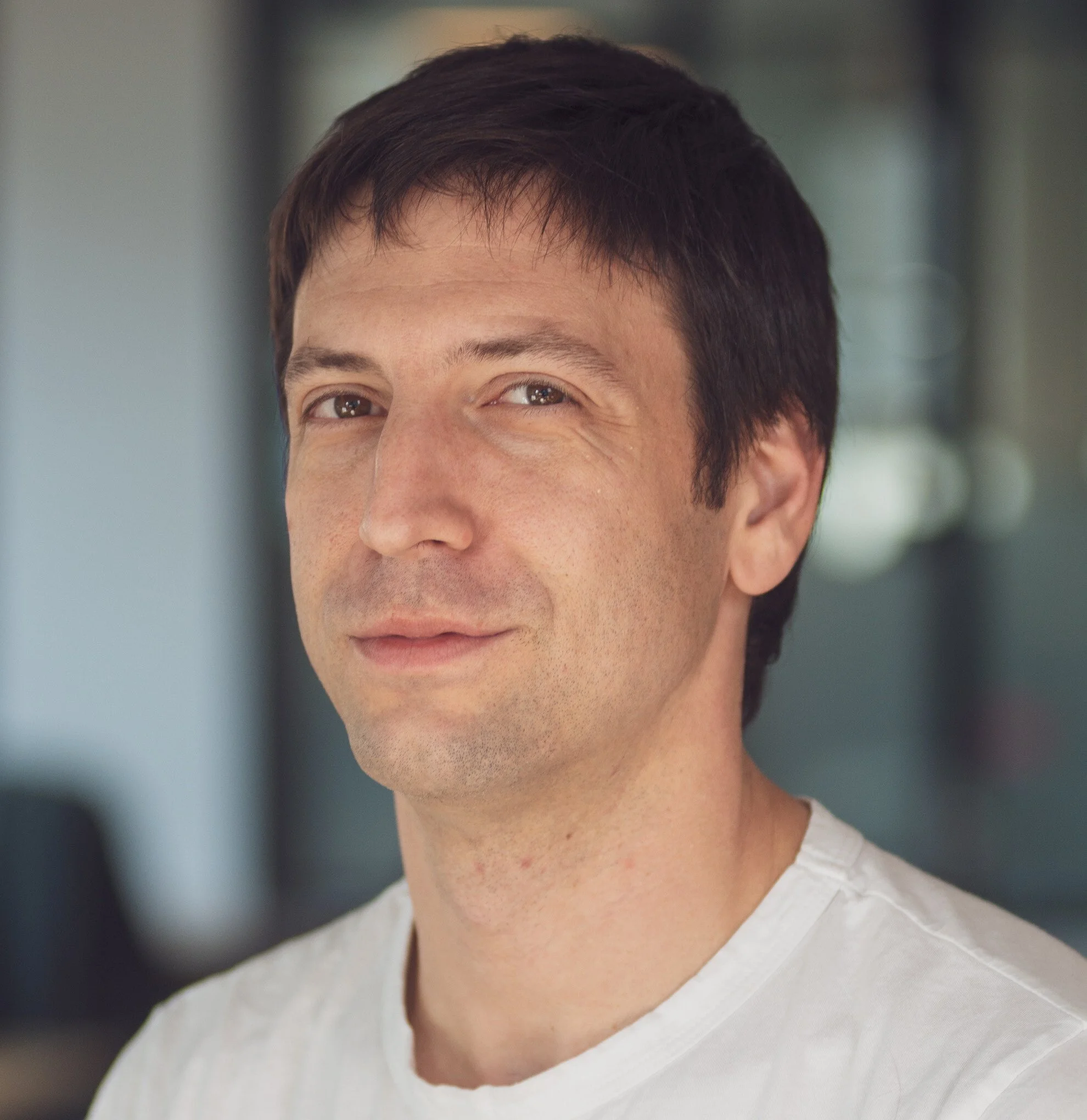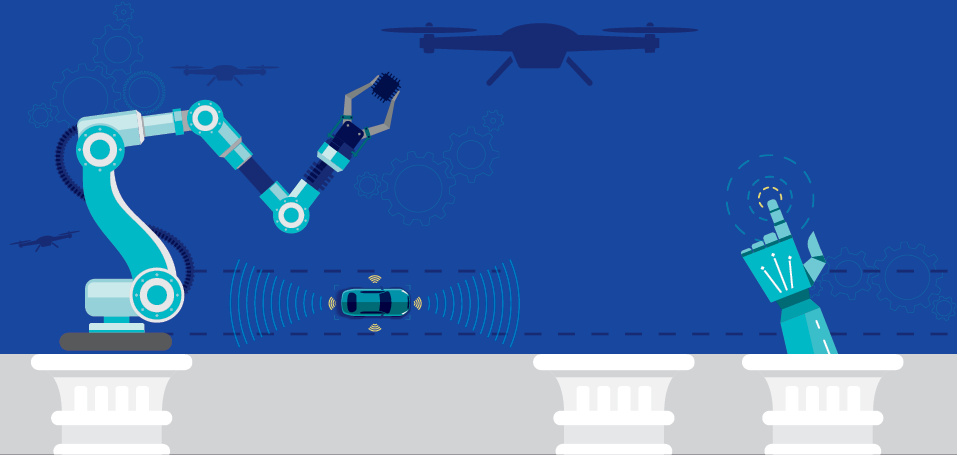Applying Computer Science to Life
TRICIA MILLER KLAPHEKE
The School of Computer Science is a hotbed for startups focused on healthcare, whether they’re creating new technology that will make care for patients more accessible, affordable and effective; or developing methods that will establish new ways of doing medical research more efficiently. The entrepreneurial culture at SCS complements the world-class healthcare experts and facilities in Pittsburgh, particularly at the University of Pittsburgh Medical Center (UPMC).
Zachary Lipton, the Raj Reddy Associate Professor of Machine Learning, co-founded Abridge in 2018. Abridge pioneered ambient listening in healthcare, leveraging the raw audio of doctor-patient conversations and health record context to automate the administrative work that burns doctors out and diverts their attention from patient care. Abridge has been deployed in more than 100 healthcare systems across the U.S., assisting clinicians in millions of patient visits every week.
“As a professor, I pursue foundational research on robust machine learning and forge collaborations with leading medical institutions,” said Lipton. “At CMU, I built a large lab with a wildly talented and creative group of students. They’ve forced me to grow technically, to craft a cohesive research agenda and to grow as a leader. My post at CMU also created the opportunity to build bridges to neighboring health institutions, including UPMC. My collaboration with Abridge CEO Shiv Rao, a UPMC cardiologist, was born out of this inter-institutional partnership. So Abridge is truly a Pittsburgh story with deep roots at UPMC and CMU.”
Zachary Lipton, Raj Reddy Associate Professor of Machine Learning
John Galeotti (SCS 2005, 2007), senior systems scientist in robotics and associate professor of biomedical engineering
Every healthcare-focused startup at SCS begins with an idea formed through research over time, which eventually leads to an innovation that could save lives. John Galeotti (SCS 2005, 2007), a senior systems scientist in robotics and associate professor of biomedical engineering, has studied computer vision at Carnegie Mellon since he came to Pittsburgh as a graduate student in 2002. In 2021 he launched Elio AI, which develops AI for point-of-care imaging, starting specifically with ultrasounds of lungs. Galeotti said the most exciting thing about this technology is that instead of improving on something humans already do, it is doing something humans have not been able to do.
After developing an idea, the first hurdle founders face is funding the company, and most of them rely at least partially on funding from the federal government, in both the research and development phases. Elio AI has continued to work with Carnegie Mellon, leveraging at least five prior and current grants from four different government agencies, Galeotti said.
“There are very few ways the government can spend its money better than saving lives while simultaneously reducing the cost of saving those lives.”
Democratizing Care
Abridge and Elio AI are among a group of startups that aim to improve patient care by making it more accessible, affordable and effective. Abridge’s AI ambient listening technology frees up clinicians’ time and mental energy so they can focus on patient care while spending less time on administrative tasks. The company continues to improve the service to address more tasks and deliver value across every stakeholder type, specialty and care setting. Hospital administrators are introducing Abridge’s technology in hospital nursing, emergency departments and inpatient settings.
In the future, Lipton expects Abridge to pull downstream workflows, such as revenue cycle management, up to the point-of-care. This could mean flagging and closing gaps in documentation while the patient is still at their appointment, eliminating the need for insurance companies to contact doctors weeks after a visit with follow-up questions related to prior authorization or billing. All of this helps healthcare systems save time, money and, ultimately, lives.
Elio AI aims to help doctors identify risk factors earlier. A decade ago, medical practitioners rarely used lung ultrasounds for diagnosis or patient care. Now several lung problems can be indirectly monitored via ultrasound. “Our clinician partners say it’s like trying to get a human to read a QR code or looking for a polar bear in a snowstorm,” said Galeotti. “We know the information’s in there, but it’s not like looking at other anatomy where you see the clear boundaries and that’s what matters. Instead it’s more abstract and indirect and a compelling application for AI, if you can make AI do that.”
One of the most promising uses for AI in lung ultrasounds is for patients with congestive heart failure. As the patient’s heart struggles to pump blood, pressure builds in the lungs and fluid seeps in so they can’t breathe. When doctors treat patients with congestive heart failure in the hospital, they don’t have good tools to determine how much fluid should be removed. If fluid remains in the lungs after discharge, many of those patients will quickly end up back in the hospital with the same problem, and Medicare financially penalizes the hospital, forcing them to cover the extra costs.
Galeotti is trying to show that Elio AI’s technology can give doctors a better sense of which patients are responding well and which patients are more likely to return to the hospital soon, allowing doctors to judge how aggressively to treat the patient at their initial visit. Patients get the care they need the first time while hospital and insurance companies reduce costs.
In addition to point-of-care ultrasounds, Elio AI is working on optical coherence tomography (OCT) technology, which uses light waves instead of sound waves to help in eye surgery and eye-related diagnostics, other point-of-care imaging, and stand-alone radiology. Over the long term, Galeotti sees Elio AI empowering clinicians to have their own lower-cost imaging, including hand-held ultrasound probes that can be plugged directly into a smart phone.
Healthcare in the Home
Saving lives by making care more accessible, affordable and effective is also the focus for Korion Health. The company grew out of Anna Li’s personal experience as a patient, patient advocate and a daughter of immigrants. Li, an MD-Ph.D. student at the University of Pittsburgh working toward her Ph.D. in the joint CMU-Pitt Ph.D. Program in Computational Biology, worked with a friend with expertise in software development to create a guided stethoscope patients can use at home. Their goal is to make preventive heart care as accessible and user-friendly as possible, in the hope that fewer people will end up with emergent needs.
“Having a tool to detect heart disease early and prevent progression means nothing if people don’t use it,” Li said. “So humanism and friendliness to the design are behind everything we create, from the stethoscope handle and fun blue color to the design for the guided interface which prioritizes patient privacy as well as reliability.”
Anna Li, Ph.D. student in computational biology and co-founder of Korion Health
Korion Health receiving the Hult Prize Global Competition.
In 2024 Korion Health won $1 million in the Hult Prize Global Competition, and it has raised more than $2 million in preseed funding through foundations, grants and crowdfunding. Its flagship product, the SoundHeart Stethoscope, is projected to be FDA cleared by the end of 2025. Future directions include getting clearance for the guided interface and machine learning-based diagnostics, as well as expanding to other home health monitoring devices.
Howie Choset, professor of Robotics
Professor of Robotics Howie Choset founded Medrobotics (read more) and is at work on a new startup called Omnibus Medical Devices, which he calls “medical devices for the rest of us” in reference to the TV show “Seinfeld.” The company produces a data collection device and a portable, low-cost ventilator that patients can use at home early in their illness. This device is a stark contrast to the bulky, expensive ventilators currently used at hospitals. Omnibus’ ventilator would collect data that physicians could analyze to see whether a patient is improving or might still need to come to the hospital.
“There are too few ventilators, so we save them for the very sick people,” he said. “With our ventilator, more people can get access to medical care.” Choset said physicians were impressed that the Omnibus ventilator can provide data and be controlled from remote locations, requiring only internet access
Fast Tracking Drug Development
Other SCS startups are using AI to make medical and biological research more efficient, cost-effective, and less risky. Eric Xing, a professor in the Machine Learning Department, Language Technologies Institute and Computer Science Department, officially founded GenBio AI in late 2024. He considers GenBio AI to be, at its core, an AI company, not a healthcare, medical or biotech company, that has learned from large language models’ broad purposes. (Read more information on GenBio AI.)
Another method of new drug discovery is genomics and transcriptomics, or the study of RNA molecules in cells to understand gene expression patterns and cellular processes.
Formerly known as Ocean Genomics, Ellumigen is a software company focusing on transforming the way genomic research is done. Carl Kingsford, the Herbert A. Simon Professor of Computer Science and the director of the Center for Machine Learning and Health, said that in 2018 his lab had developed open-source genomic software. Even though it had been widely adopted, Kingsford felt it was not being used to its full potential because professionals in drug development didn’t know about it or didn’t have the skills or infrastructure to use it.
Eric Xing
Carl Kingsford
“The motivation for starting Ellumigen,” Kingsford said, “was to provide people working in genomics and transcriptomics with better tools and a better environment to analyze their data, allowing them to make discoveries about things like biomarkers for different diseases and predictors for which treatment would be effective for which people — and certainly to identify genomic targets for new drugs.”
The company’s product is an AI chat-based data exploration tool that allows users to explore and make discoveries from molecular data in minutes using natural language instead of the hours or days it can take with other systems. The company works with small to mid-size pharmaceutical companies and clinical researchers. They have worked primarily on cancer research, including pancreatic and colon cancers, because they tend to have more data available. Ellumigen developed a biomarker for pancreatic cancer, for example, that predicts the severity of the cancer and its impact on a patient’s survival time (though the biomarker has yet to be approved by the FDA). They have also worked on rare diseases such as Duchenne muscular dystrophy.
Making the drug development process more efficient, less expensive and less risky will not save lives immediately, but over the long term it could have an enormous impact. ■










